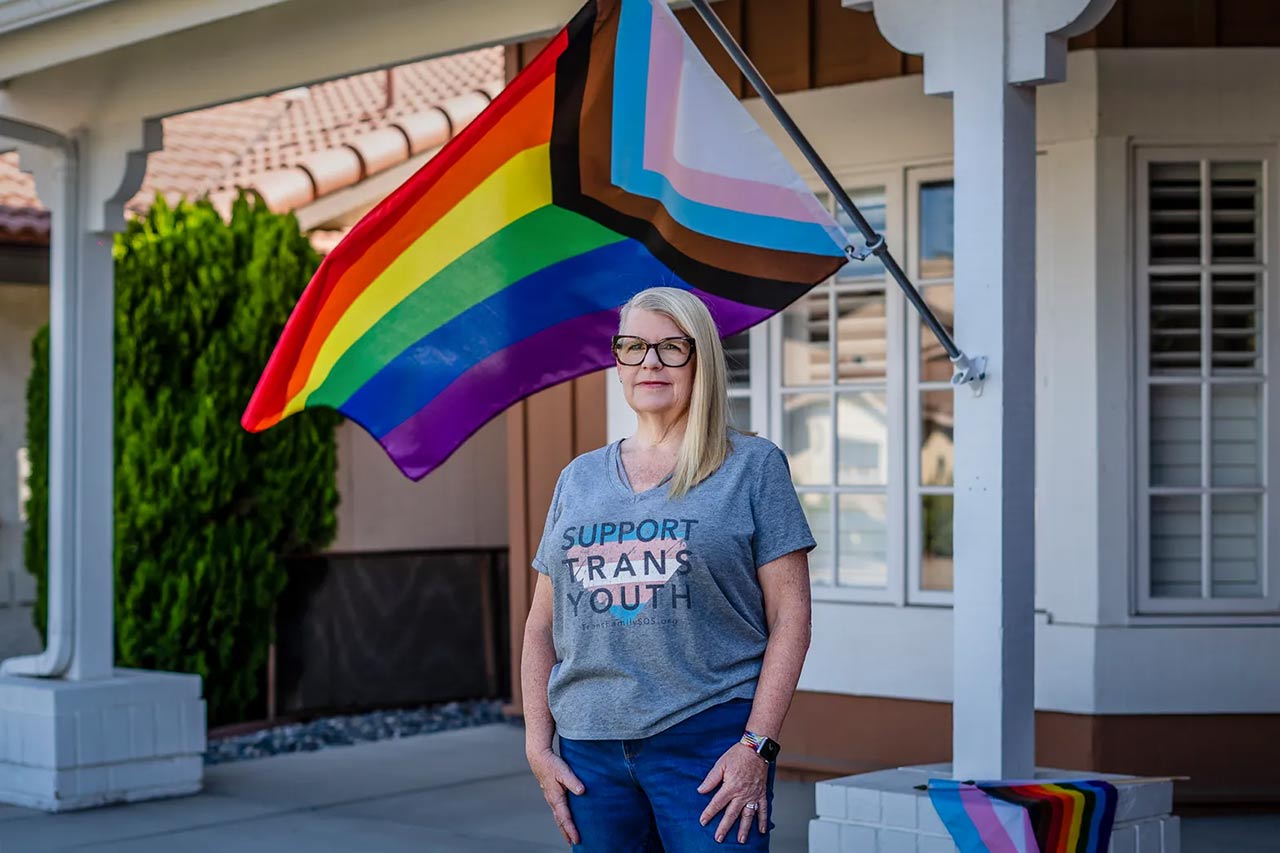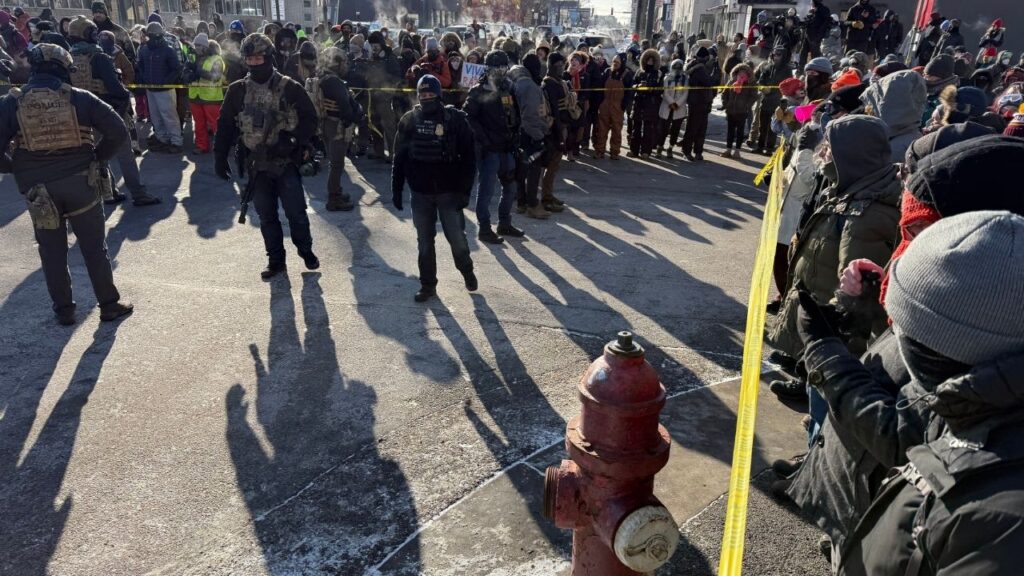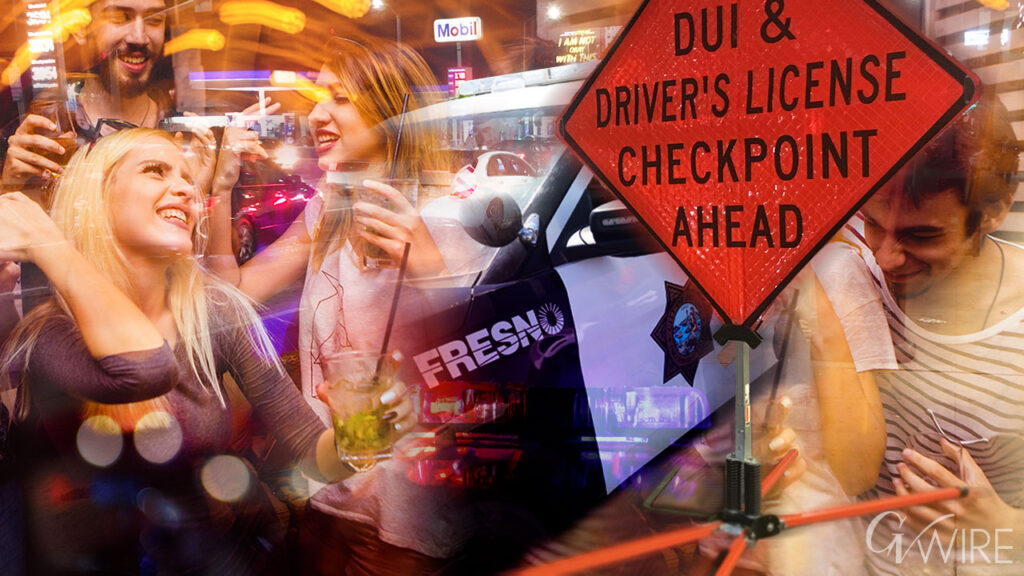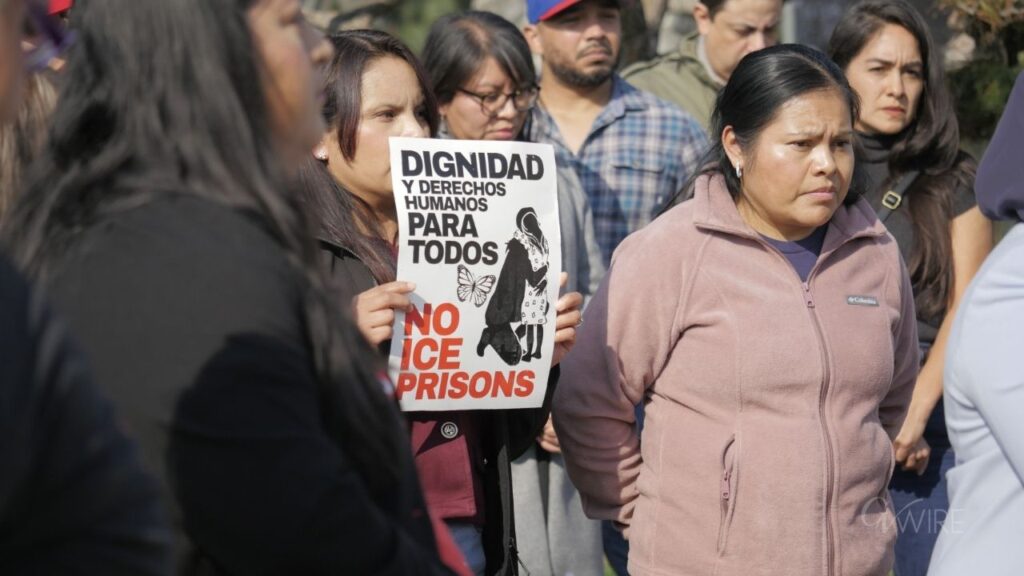Victims of doxxing in California may soon have the right to sue for damages as a bill aims to provide civil recourse for online privacy violations. (AP/File)

- Assembly Bill 1979 could allow doxxing victims to sue for up to $30,000.
- The bill has gained support from several LGBTQ+ organizations and cities.
- Six states already have similar anti-doxxing laws providing civil protections.
Share
|
Getting your Trinity Audio player ready...
|
When Kathie Moehlig’s personal information was leaked online five years ago, she didn’t believe she had options to fight back.

Jenna Peterson
CalMatters
“There was no recourse that I had to be able to go and have this individual held accountable for the risk at which they put myself and my family,” said the founder of TransFamily Support Services.
A bill now before the California Legislature aims to change that.
Doxxing — when someone shares another’s personal information online with the intent to harm — is a crime. It isn’t often prosecuted, however, because of the high threshold for evidence, such as proving who first posted the information and why. In the last five years, for instance, prosecutors filed 30 cases of doxxing in Orange County — and just one in Sacramento County.
Assembly Bill 1979 would allow victims to sue those responsible for doxxing in civil court for as much as $30,000, plus attorneys’ fees and court costs.
“We see doxxing as a very extreme form of privacy invasion with a lot of distress and anxiety,” said Assemblymember Chris Ward, a San Diego Democrat and co-author of the bill. “Victims are often left to work through a lot of emotional, physical, financial or other damages on their own, and they’re not made whole because there’s no ability to recapture any civil penalty to be able to support them on their journey to recovery.”
The Assembly passed the bill last month, as did the Senate judiciary committee earlier this month. It’s set to go before the appropriations committee Monday.
In addition to TransFamily Support Services, the bill has support from several other LGBTQ+ organizations — including the California Legislative LGBTQ Caucus and Equality California — as well as the Anti-Defamation League and the cities of Sacramento and San Diego. No organizations have said they oppose it.
Related Story: Supreme Court Seems Favorable to Biden Administration Over Efforts to Combat ...
Six states have similar anti-doxxing laws that provide civil protections, and a few others failed to pass laws this year.
Assemblymember Cecilia Aguiar-Curry, a Democrat from Davis and the bill’s other co-author, said she has been a victim of doxxing. Late one night, she got a threatening text from an unknown number with information about her home address and family. Assembly sergeants were able to find the doxxer, who was sentenced to five years probation, Aguiar-Curry told CalMatters.
“It was frightening,” she said. “Now people have the availability of personal information online, and the presence of social media everywhere in our lives has made doxxing an even greater threat to all of us. My privacy has been touched. My safety was touched.”
Doxxing’s Impact on LGBTQ+ Community
In a 2024 Anti-Defamation League report, LBGTQ+ respondents had the highest levels of severe online harassment compared to other demographic groups: 45% of transgender respondents said they had experienced severe online harassment — including doxxing — in the last year.
While there isn’t much data available on doxxing alone, LBGTQ+ organization leaders agree it’s prevalent.

“So if people are sending out your information and posting on social media where you live, that is going to cause harm, distress and anxiety,” said Jorge Reyes Salinas, communications director at Equality California. “That’s just the mental health component, but of course that could literally lead to someone going to your home, where you are the most safe, and causing harm or even potential death.”
Moehlig founded TransFamily Support Services 10 years ago, a couple of years after she struggled to find care for her 11-year-old son when he decided to transition. She said that after being doxxed, she didn’t feel safe in her own home and was worried about her son.
“It’s that piece of feeling targeted, feeling like you have to look behind your shoulder all the time, and having to be more aware of the risks that are involved in just trying to make the world a safer place for my child and the other people we serve,” she said.
Moehlig and Reyes Salinas said the rise of anti-trans legislation and hate rhetoric throughout the country has increased online harassment.
“Those attacks have definitely caused individuals and their allies to maybe take a pause,” Moehlig said.
Related Story: Bill That Could Make TikTok Unavailable in the US Advances Quickly in the House
Doxxing of Gaza War Protesters and Counterprotesters
When pro-Israel counterprotesters attacked a UCLA encampment in May, people online rushed to identify them and post their information publicly — including their faces, license plate numbers and workplaces.
Information on many pro-Palestinian protesters has been posted on the Canary Mission website, which states that its goal is to “document individuals and organizations that promote hatred of the USA, Israel and Jews on North American college campuses and beyond.” The website contains the faces of hundreds of people who have expressed their support of Palestinians or criticized Israel, sometimes with details on where they live or their social media accounts.
To protect themselves, many protesters and counterprotesters have chosen to remain anonymous in interviews with journalists or wear masks or other face coverings.

But Los Angeles Mayor Karen Bass announced Monday — the day after a violent protest at an L.A. synagogue — that she would consider implementing mask bans at protests. Jeffrey Abrams, ADL’s Los Angeles regional director, said at the same press conference that he supports looking into a mask ban.
In an interview before the press conference, Mark Levine, the Anti-Defamation League’s Central Pacific regional director, said that the group’s support of doxxing victims is a “longstanding position” that is unrelated to current events.
“Doxxing is doxxing,” Ward said when asked how his bill would apply to Gaza war protests.
The Legislator Who Voted ‘No’
While the bill received near-unanimous support, Assemblymember Diane Dixon cast the sole “no” vote on the Assembly floor. She said in an interview that the bill isn’t needed because it’s already a crime.
“Private right to action brings a lot of unnecessary lawsuits and clogs up our courts for unjustifiable reasons, particularly if there’s already a law against this,” she said.
Dixon, a Republican from Newport Beach, also argued that doxxing isn’t considered a hate crime in California — referencing a 2022 hate crime report from California Attorney General Rob Bonta’s office — and that the bill raises free speech concerns.
“People can be suing one another if they feel offended, without being physically threatened,” she said.
Related Story: TikTok Trend #BlockOut2024 Challenges Celebrity Silence
When asked about freedom of speech, Ward and Levine pointed to the bill language, which specifies that doxxing is done with “the purpose of imminently causing that other person unwanted physical contact, injury, or harassment.”
“If people are not acting with a level of the intent to harass an individual — and with the reckless disregard that the information posted will be used to carry out criminal conduct such as death, injury or stalking — anti-doxxing laws should not apply,” Levine said.
But Moehlig said what happened to her shows the need for the bill.
“Having another tool, another piece to help deter this kind of behavior is really important,” she said. “Having the opportunity as a victim to be able to stand up to it in a civil court helps to bring some power back to people who are victims.”
About the Author
Jenna Peterson joins CalMatters as an intern with the Politics team through the Dow Jones News Fund digital media program. She recently graduated from the University of Southern California, where she majored in journalism and political science. In her time at USC, she served as editor in chief of the Daily Trojan and held internships with VTDigger, LAist and the Los Angeles Times.
About CalMatters
CalMatters is a nonprofit, nonpartisan newsroom committed to explaining California policy and politics.
RELATED TOPICS:
Categories

Federal Agents Kill a 37-Year-Old Minneapolis Man

Syria Ceasefire With Kurdish Forces Expires Amid Uncertainty
Frigid Weather Stresses US Electric Grid
















